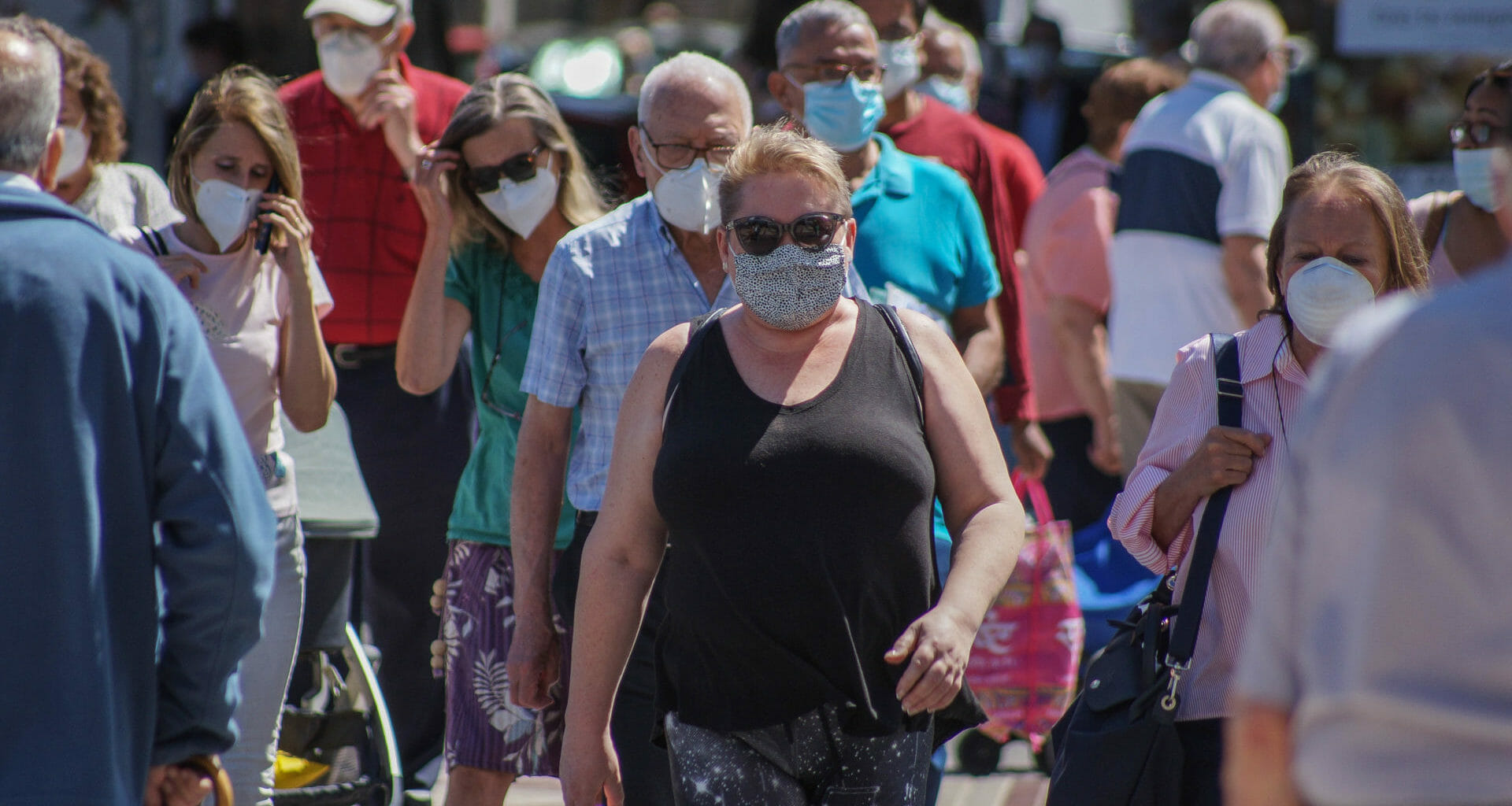The Covid-19 pandemic continues to impact Scotland and the rest of the UK, with further restrictions in place as the Omicron variant spreads rapidly.
During the Scottish budget debate on 9 December, the effect of so-called ‘long Covid’ was brought up by Liberal Democrat leader, Alex Cole-Hamilton.
The Edinburgh Western MSP questioned why the Scottish Government’s budget made no mention of those suffering from the condition.
100,000 people in Scotland currently suffering from long Covid.
Alex Cole-Hamilton
Ferret Fact Service looked at this claim and found it Mostly True.

Long Covid
Scientists are still learning about the causes, impact and prevalence of long Covid, which has only been recognised recently.
The term ‘long Covid’ is not a clinical one, but is widely used in the media and as an umbrella description of post-Covid syndrome.
It is commonly agreed that people are suffering from long Covid if their symptoms from an infection with Covid-19 continue past 12 weeks, but symptoms that last longer than four weeks can also be referred to as long Covid.
The NHS guidance uses the term “ongoing symptomatic Covid-19” for 4 to 12 weeks after infection, and “post-Covid-19 syndrome” for symptoms more than 12 weeks after infection.
There are different symptoms associated with long Covid including breathlessness, chest pains, fatigue, ‘brain fog’, headaches, muscle pain, and depression.
People who have the condition will likely not have all these symptoms.
Evidence
Scientists and the government have been attempting to find out how many people have the condition, and Alex Cole-Hamilton suggested there were 100,000 people currently with long Covid in Scotland.
The best statistics available on the number of sufferers comes from the Office for National Statistics (ONS), which has been publishing monthly experimental figures on long Covid.
An estimated 99,000 people in Scotland were suffering from long Covid according to the latest figures, released on 2 December. The statistics covered the four-week period up to the end of October.
However, the statistics released by the ONS come with some important caveats. Firstly, these are experimental statistics, which means they are newly developed and are being tested and tweaked.
The estimate of 99,000 people living with long Covid is not based on clinical diagnosis. Instead, the data is gathered from responses to the Coronavirus Infection Survey (CIS). This is self-reporting, meaning any results should be treated with a level of caution.
The data is then estimated from a sample, which in Scotland was 28,065. The sample group was only taken in private households, excluding “communal establishments such hospitals, care homes, schools, halls of residence and prisons”.
The final issue is the lack of a consistent definition of what constitutes long Covid. Clinical definitions do exist but the wide array of potentially included symptoms and the self-reporting of the data means it can be difficult to consistently measure.
The ONS, for example, has had significantly different figures when relying on self-reported diagnosis, when compared to tracking certain associated symptoms.
Ferret Fact Service verdict: Mostly True
Alex Cole-Hamilton is using the most up to date figures from a reliable source. His claim that there are 99,000 people suffering from long Covid is based on an estimate, rather than actual diagnosis data. The ONS figures should be treated with caution, as they are based on self-reporting. They are also affected by the lack of knowledge and consistency in defining the condition and its symptoms.
Ferret Fact Service (FFS) is a non-partisan fact checker, and signatory to the International Fact-Checking Network fact-checkers’ code of principles.
All the sources used in our checks are publicly available and the FFS fact-checking methodology can be viewed here.
Want to suggest a fact check?
Email us at factcheck@theferret.scot or join our Facebook group.
In response to an evidence request, the Scottish Lib Dems provided the relevant ONS report.
Photo Credit: iStock/Alejandro Castellon














